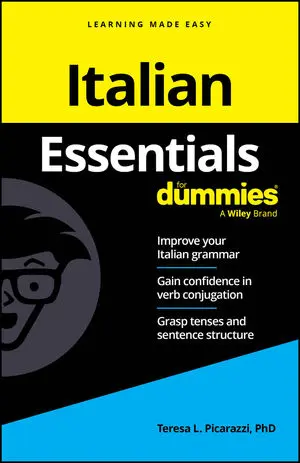You usually ask a question to start a conversation. Of course, you don't necessarily have to ask the well-known: "Nice weather today, isn't it?" You have lots of other possibilities for framing a question. A few simple key words for asking questions are as follows:
- Chi? (kee) (Who?)
- Che? (keh) (What?)
- Che cosa? (keh koh-zah) (What?) (This is the preferred use.)
- Dove? (doh-veh) (Where?)
- Quando? (koo-ahn-doh) (When?)
- Perché? (pehr-keh) (Why?)
- Come? (koh-meh) (How?)
- Quanto? (koo-ahn-toh) (How much?)
- Quale? (koo-ah-leh) (Which?)
To be sure, these single words won't help you that much in starting a conversation. You may want to have the following practical examples up your sleeve when a chance for small talk arises:
- Chi è? (kee eh) (Who's that?)
- Scusi, che ore sono? (skoo-zee kee oh-reh soh-noh) (Excuse me, what time is it?)
- Che cosa ha detto? (keh koh-zah ah deht-toh) (What did you say?) (formal)
- Dov'è la stazione? (doh-veh lah sta-tsee-oh-neh) (Where is the station?)
- Quando parte l'aereo? (koo-ahn-doh pahr-teh lah-eh-reh-oh) (When is the plane leaving?)
- Perché va a Milano? (pehr-keh vah ah mee-lah-noh) (Why are you going to Milan?)
- Com'è il tempo? (kohm-eh eel tehm-poh) (How is the weather?)
- Quanto dura il volo? (koo-ahn-toh doo-rah eel voh-loh) (How long is the flight?)
- Qual è l'autobus per il centro? (koo-ahl-eh lah-oo-toh-boos pehr eel chehn-troh) (Which is the bus to downtown?)
Here's a tiny, but practical, grammar hint. You know that little things in life can change the world. Although not as dramatic, a tiny little accent can change the meaning of a word. You may have already noticed the word è (eh) (he/she/it is) and its accent. This accent distinguishes this word from another little word, e (eh) (and), which looks the same but has another meaning. Needless to say, both of these words are used quite frequently.
è(eh) = he/she/it is
e (eh) = and
You may wonder how Italians make out the difference between the two sounds. Quite easily! You can see the accent in written communication; however, when speaking, the difference lies first in hearing the pronunciation — the è is slightly more open, as in hell — whereas the e sounds more like the e in gourmet. And second, when speaking, you don't need to differentiate between the two words because the context tells you which is which.






